As we continue emerging from the pandemic, mobility will play an increasingly important role in our daily lives. If you live in Miami, or another urban area in South Florida, chances are that a large portion of your day is spent getting from one place to another.
If you’ve been here for a while, your commute has likely gotten worse: the 2020 census showed that South Florida had grown more than 10% since the 2010 census – three percentage points higher than the US overall. Anecdotal evidence suggests that this growth trend has further accelerated since then. Additionally, on a macro level, transportation is a major polluter, accounting for roughly a quarter of global CO2 emissions.
However, there are a handful of initiatives happening in and between the public and private sectors to make mobility a bit less painful for humans and less harmful to the environment. Many of these solutions are enabled by technology that simply did not exist even a few years ago. But some local mobility experts argue that the government is not doing enough to bring meaningful public transportation solutions to citizens.
Refresh Miami has compiled some of the major mobility initiatives happening around South Florida, and some commentary on how public sector bodies can further improve public transport options.
eScooters: A far cry from the Razor scooter of your youth
Who says transportation has to be boring? Hopping on an eScooter can be an exhilarating way to get around the city.
When it comes to electric scooters, Miamians have a wide range of options. Beginners might enjoy taking a ride on scooters provided by one of the city’s seven partners, including Lyft, Lime, and Miami Beach-based Bolt Mobility. Download the app, find a scooter, and you’re good to go. Remember to wear a helmet!

Once you start riding around town a few times a week, it may make sense to invest in a scooter of your own. Finding the right vehicle at the right price can be a daunting task. But stop by Miami-born scooter store, Fluidfreeride’s Little Haiti headquarters, to test out some options and get expert advice about what models best fit your needs.
If you’re looking for a slightly elevated option, check out SunVessel. This Miami startup has been developing an electric scooter with the help of Italian design firm Pininfarina, whose star-studded client list includes the likes of Ferrari, Maserati, and Alfa Romeo. SunVessel has developed a unique docking station that is more like a beautiful piece of furniture than a black wire hanging out of your wall. The startup is still in the early days of rolling out the product, but it is currently available for customers living in certain zip codes in and around Brickell.
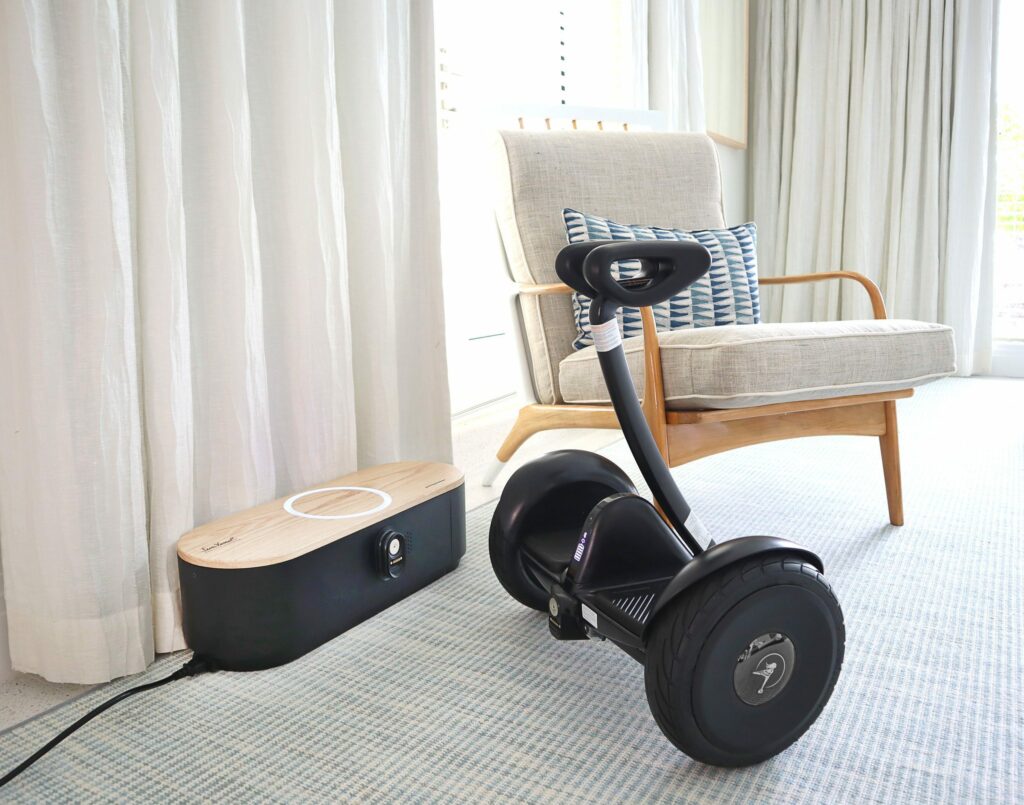
Once you have your own scooter, you can take advantage of one of Swiftmile’s charging stations. The Silicon Valley startup landed in Miami this summer and set up 25 hubs where you can juice up your ride. It’s also a great spot to leave a scooter you might have rented through one of the apps. The company told Refresh Miami that it has plans to deploy more than 100 hubs in the Magic City by the end of 2022. Charging stations can be found throughout the eScooter operational area, which mostly covers Downtown Miami and Brickell.
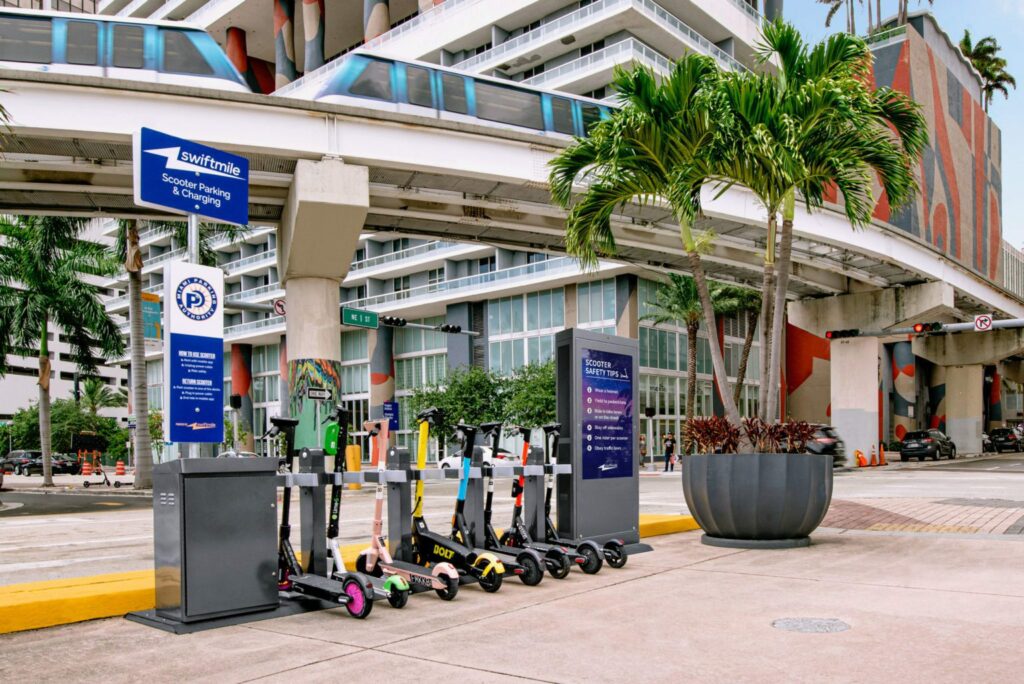
Despite Miami’s new eScooter options, one local mobility advocate notes that there is still room for improvement.
Kevin Amézaga is a student at Florida International University and President/Executive Director of the Miami Riders Alliance, a nonprofit that advocates for safer streets for all and better public transportation options in the city and county.
In an email to Refresh Miami, he underscored that the scooter program is heading into its fourth year as a pilot program, and its future is uncertain. “The scooter program is another failure of the City. More recently, it’s been used as a political chess piece.”
He continued: “[The Miami Riders Alliance has] been working with the seven scooter operators to self-regulate and provide reporting services to the community because the City has never—nor has it shown an interest in—making this program work.”
Fluidfreeride founder Julian Fernau echoed this sentiment when Refresh Miami caught up with him this summer: “I don’t think the city is managing this process,” he said. “Why do we need to have seven or eight [scooter] sharing companies in Miami? It feels like, ‘okay, everybody come – and then we’ll deal with regulation later.’”

The next Lyft you order might drive itself
If you do have to sit in traffic, you could at least try to avoid having to drive. This summer, Ford announced a partnership with Argo AI to bring self-driving cars to Lyft’s network in Miami later this year. For now, safety drivers will monitor the self-driving car.
Miami has been Ford’s ground zero for autonomous vehicle testing and commercialization of self-driving services since early 2018. As Ford’s first testing site globally, managed locally by Alex Buznego, Ford and Argo AI have put their vehicles through the Miami driving bootcamp, delivering everything from pizzas for Domino’s to other life essentials for other retailers. It’s hard to imagine a better place for these cars to learn the ropes than the congested corridors of Brickell, Wynwood, and South Beach. The testing “provided us with invaluable real world insights to build the customer experience, the business models, the operations, and our [Transportation-as-a-Service] software,” Buznego said in a blog post earlier this year.
Last month, Ford and Argo announced its AVs will begin deliveries for Walmart in parts of the Magic City by the end of this year, and as with the Lyft partnership, they have expressed interest in expanding the service over the next few years.
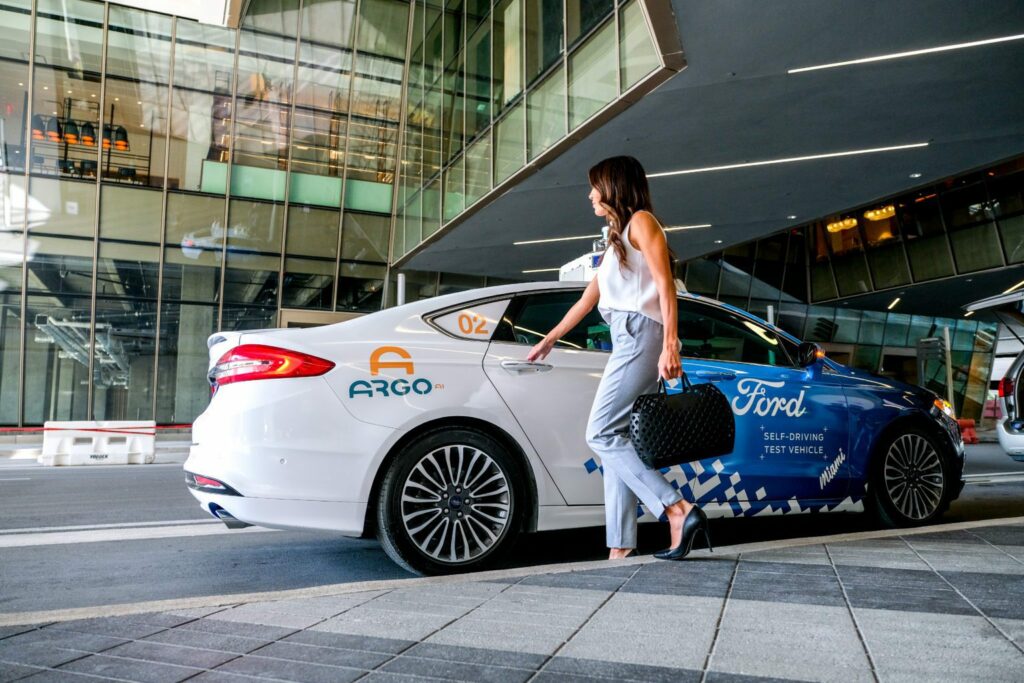
Skip traffic by traveling underground
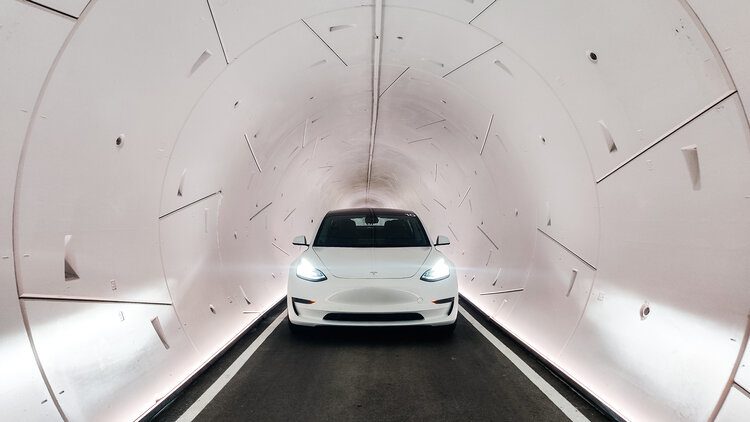
Miami is not the only South Florida city with innovative mobility aspirations. Fort Lauderdale has seen some proposals to build transportation alternatives to help locals and tourists alike avoid traffic bottlenecks while traveling between the city’s major destinations.
Elon Musk’s Boring Co. submitted a bid to build a tunnel system under Las Olas Boulevard, ferrying riders from the Brightline station to Las Olas Oceanside Park in a luxury Tesla. In a tweet, Fort Lauderdale Mayor Dean J. Trantalis said that the plan “could be a truly innovative way to reduce traffic congestion.” The bid was later approved for exclusive negotiation with the City of Fort Lauderdale. However, Boring Co.’s Las Vegas tunnel has come under scrutiny for going over budget and costing more than other mobility options.
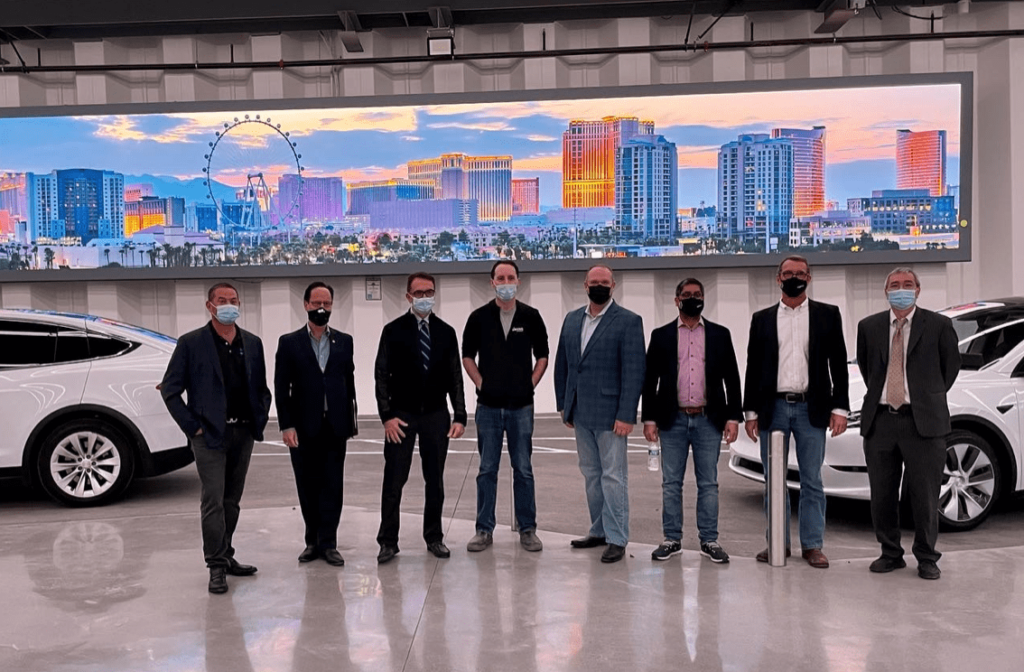
Recently, Silicon Valley startup Glydways threw its hat in the ring to bring their alternative mobility solution to Fort Lauderdale. The company has developed their own autonomous pods that it says are more accessible than Musk’s Teslas. The system would be partially above ground as well as below ground. It would have a net-zero carbon footprint, and Glydways has committed to charging the same price for their services as currently-available public options.
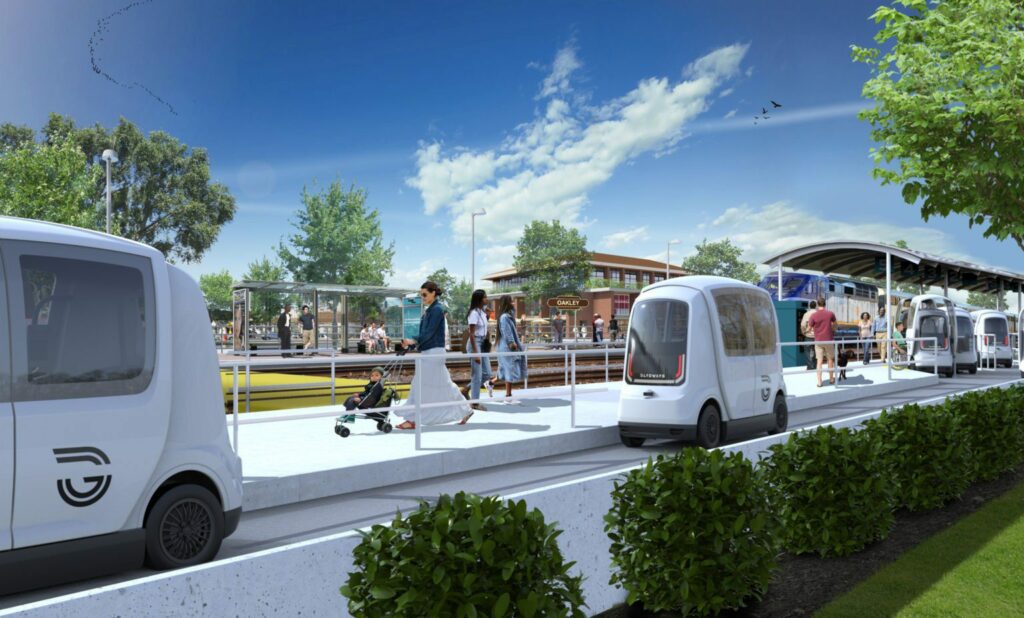
Public transport options already running along this route include Broward County’s buses and the City of Fort Lauderdale’s free Community Shuttle.
The City of Miami has also expressed interest in Boring Co.’s infrastructure offerings. Mayor Francis Suarez visited the tunnel in Las Vegas last March. Suarez has signaled that he hopes to bring Florida Governor Ron DeSantis and Miami-Dade County Mayor Daniella Levine Cava to the table to discuss what Suarez called “a unique opportunity to create a signature project not just for Miami, but for the world.”
However, Amézaga from the Miami Riders Alliance is not impressed by the mobility proposals of Musk and others: “Miami needs infrastructure for mobility alternative solutions — and by that I specifically mean pedestrian, bicycle, scooter, and otherwise personal micromobility solutions, not any pod-based or unproven transportation technology that’s more shine than anything else.”
Rise above the mobility mess in air taxis
Rather than boring underground, how about an Uber-like air taxi service that whisks you up and over South Florida’s notorious traffic jams? The infrastructure for short-hop air taxis is already here – indeed, Miami-based REEF Technology, owner or operator of thousands of parking facilities across the country, has partnered with both Archer and Joby, two recently publicly traded air taxi startups, to provide rooftop “vertiports” for their eVOLs, all-electric aircraft that can quietly take off and land vertically.

Archer and Joby [Joby’s aircraft is pictured at the top of this post] are among dozens of companies racing to be the first movers in what Morgan Stanley predicts could be a trillion-dollar market before 2040, and both say Miami will be an initial launch city. The German startup, Lilium, is also hovering over Miami and rather than the short urban hops Archer and others aim to offer – think MIA to South Beach – Lilium envisions much longer rides, such as Miami to Orlando or Orlando to Tampa.
Air taxis could become reality in South Florida sooner than you might think. These players predict their services will launch in 2024 or 2025, and say they are on track with development and regulatory hurdles. Archer has said the cost of a ride on its 5-seater would be comparable to an Uber. Up, up and away? We’ll soon find out.

To be sure, Miami has more alternative mobility options than ever before. And with the trend of new technologies enabling increasingly sophisticated and accessible transportation systems, it is possible that brighter days are to come for mobility in Miami and beyond.
Nancy Dahlberg contributed to this report.
READ MORE MOBILITY STORIES ON REFRESH MIAMI:
- City of Fort Lauderdale to consider bid from Elon Musk’s Boring Co. to build tunnel to alleviate gridlock
- SunVessel offers elegant, electric solution to Miami’s mobility mess
- Swiftmile scoots into Miami, enabling sustainable transport options
- Ford, Argo AI to bring self-driving Lyfts to Miami by year’s end
- Miami in AV driver’s seat again: Ford self-driving vehicles soon to make deliveries for Walmart
- Archer partners with REEF for access to vertiport locations
- Joby’s deal with REEF could bring air taxis to Miami as soon as 2024
- Brought together by tech, kept together by culture: Miami’s protagonistic role in LatAm’s startup story - April 15, 2024
- New World Angels launches Innovation Fund to write pre-seed checks - April 12, 2024
- Sortium scores $4M to pioneer the future of game production (hint: it’s web3 and AI) - April 11, 2024





